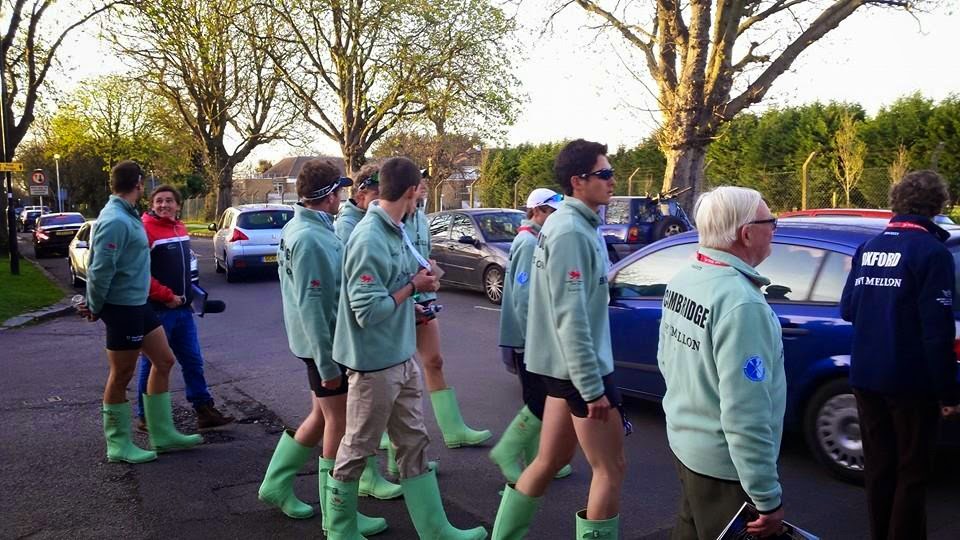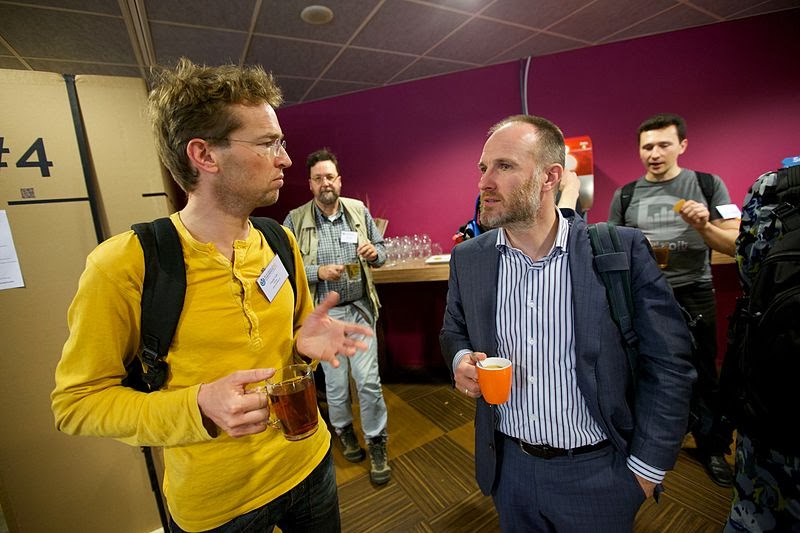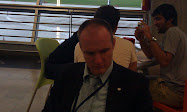Monday, June 20, 2011
Disney's Club Penguin hacked
Parents with children 5 to 12, all over the world, are skyping each other, googling, calling, mailing, looking for a Disney website that has suddenly disappeared. Disney's flagship online game 'Club Penguin' seems to be hacked by a domain name reseller.
Thursday, June 16, 2011
Preliminary Knowledge Economy Network or K.E.N. 2011 Resolutions
Human Capital Development for Knowledge Economy: Mobilising Innovation Potential – including Gender Balance
1. Awareness of the importance of knowledge economy in the domains of tertiary education, R&D, innovation, and entrepreneurship is growing, but only some countries and regions have achieved important results. In spite of declarations, most countries and regions fail to confirm their commitment through effective action and necessary reforms creating a growing implementation deficit.
2. Following the evolution of knowledge economy debate, the creation of KEN (successor of EREF) as a global network, was a natural and logical step in the direction of enabling existing and future members to better mobilize their resources for both internal restructuring and for closer international collaboration with the aim of strengthening knowledge-based competitiveness.
3. Scope of changes required to achieve smart, inclusive and sustainable development demand a new paradigm and an important shift in our mindsets. Modern democracies leave very limited space for political voluntarism. More active involvement of civil society, including experts and professional public will contribute to better quality of legislation and decision-making in general.
4. Intensified global competition requires that organizations permanently use peer review and benchmarking through objective, scientifically verified criteria and indicators.
5. Corporate Social Responsibility is not only a moral category but an imperative for sustainable development and economically viable corporate governance - not only in the long run, but even in short-term business perspective. Besides responsible performance of managers, it is important that regulatory framework and policy instruments effectively reward proper conduct and penalize those who disregard vital interests of their immediate and broader societal environment.
6. Risk and venture capital are essential instruments of supporting early stage innovative enterprises and they depend primarily on general investment conditions and entrepreneurial culture. Regional and national authorities have to create measures stimulating capital formation and readiness to invest, as well as to nurture risk taking, and destigmatize business failure.
7. A large part of present day tertiary education does not fully reflect the current and future needs of labor markets, let alone human capital requirements of knowledge economy. The urgently needed changes can be achieved only through open dialogue and closer collaboration among universities, business and other social actors and authorities. Cooperation among universities at macroregional level on designing and implemented EU wide area strategies in the EU 2020 perspective can also play a pivotal role.
8. Regional innovation policy has to be an organic part of development strategy, corresponding to specific conditions and opportunities, paying particular attention to human capital. Due to their proximity to key stakeholders, the regions are in an advantageous position to mobilize and involve them in formulating and implementing instruments of innovation policy, thanks to EU cohesion policy made available for all European regions in the next programming period. These instruments have to be consistent with EU and national framework policies (namely EU 2020) and regulations, but should also provide additional specific measures to respond to particular needs and conditions in the respective region.
9. Gender equality is not only a question of fundamental rights, but an economic necessity. In the decision-making processes women are highly underrepresented and this certainly does not contribute to the quality of decisions, be it in politics, business or other domains of public life. Knowledge Economy Network endorses the “Women on the Board Pledge for Europe” and recommends companies to follow this important initiative of Vice President of the European Commission Viviane Reding.
10. The process of gradual integration of Southeastern Europe into the EU is very incremental, and orientation towards knowledge economy carries double benefits: it facilitates economic integration, and contributes to making a stronger, more competitive Europe. Additional efforts on both sides are urgently needed. Regional development agencies in the area have an important role in this process.
11. Diminishing European competitiveness is partly also the consequence of slow pace of integration. By increasing the efficiency of its integration Europe will also regain its attractiveness for future candidates, including those in SE Europe.
12. Forum-2011 participants supported the proposal for the topic of Forum-2012 to be “Building Knowledge Economy through partnerships”. The Forum will take place in Maribor, Slovenia on 11-12 June 2012, while the preparatory workshops should be organized with partners between November 2011 and April 2012.
1. Awareness of the importance of knowledge economy in the domains of tertiary education, R&D, innovation, and entrepreneurship is growing, but only some countries and regions have achieved important results. In spite of declarations, most countries and regions fail to confirm their commitment through effective action and necessary reforms creating a growing implementation deficit.
2. Following the evolution of knowledge economy debate, the creation of KEN (successor of EREF) as a global network, was a natural and logical step in the direction of enabling existing and future members to better mobilize their resources for both internal restructuring and for closer international collaboration with the aim of strengthening knowledge-based competitiveness.
3. Scope of changes required to achieve smart, inclusive and sustainable development demand a new paradigm and an important shift in our mindsets. Modern democracies leave very limited space for political voluntarism. More active involvement of civil society, including experts and professional public will contribute to better quality of legislation and decision-making in general.
4. Intensified global competition requires that organizations permanently use peer review and benchmarking through objective, scientifically verified criteria and indicators.
5. Corporate Social Responsibility is not only a moral category but an imperative for sustainable development and economically viable corporate governance - not only in the long run, but even in short-term business perspective. Besides responsible performance of managers, it is important that regulatory framework and policy instruments effectively reward proper conduct and penalize those who disregard vital interests of their immediate and broader societal environment.
6. Risk and venture capital are essential instruments of supporting early stage innovative enterprises and they depend primarily on general investment conditions and entrepreneurial culture. Regional and national authorities have to create measures stimulating capital formation and readiness to invest, as well as to nurture risk taking, and destigmatize business failure.
7. A large part of present day tertiary education does not fully reflect the current and future needs of labor markets, let alone human capital requirements of knowledge economy. The urgently needed changes can be achieved only through open dialogue and closer collaboration among universities, business and other social actors and authorities. Cooperation among universities at macroregional level on designing and implemented EU wide area strategies in the EU 2020 perspective can also play a pivotal role.
8. Regional innovation policy has to be an organic part of development strategy, corresponding to specific conditions and opportunities, paying particular attention to human capital. Due to their proximity to key stakeholders, the regions are in an advantageous position to mobilize and involve them in formulating and implementing instruments of innovation policy, thanks to EU cohesion policy made available for all European regions in the next programming period. These instruments have to be consistent with EU and national framework policies (namely EU 2020) and regulations, but should also provide additional specific measures to respond to particular needs and conditions in the respective region.
9. Gender equality is not only a question of fundamental rights, but an economic necessity. In the decision-making processes women are highly underrepresented and this certainly does not contribute to the quality of decisions, be it in politics, business or other domains of public life. Knowledge Economy Network endorses the “Women on the Board Pledge for Europe” and recommends companies to follow this important initiative of Vice President of the European Commission Viviane Reding.
10. The process of gradual integration of Southeastern Europe into the EU is very incremental, and orientation towards knowledge economy carries double benefits: it facilitates economic integration, and contributes to making a stronger, more competitive Europe. Additional efforts on both sides are urgently needed. Regional development agencies in the area have an important role in this process.
11. Diminishing European competitiveness is partly also the consequence of slow pace of integration. By increasing the efficiency of its integration Europe will also regain its attractiveness for future candidates, including those in SE Europe.
12. Forum-2011 participants supported the proposal for the topic of Forum-2012 to be “Building Knowledge Economy through partnerships”. The Forum will take place in Maribor, Slovenia on 11-12 June 2012, while the preparatory workshops should be organized with partners between November 2011 and April 2012.
Tuesday, June 07, 2011
"An army of lions commanded by a deer will never be an army of lions."
Napoleon Bonaparte
for more quotes go to:
http://managementquotes.blogspot.com/2011/06/army-of-lions-commanded-by-deer-will.html
for more quotes go to:
http://managementquotes.blogspot.com/2011/06/army-of-lions-commanded-by-deer-will.html
Sunday, June 05, 2011
Knowledge Economy Network Forum Monday 6 and Tuesday 7 June in Maribor Slovenia
More info: http://www.knowledge-economy.net/
Boris Cizelj, KEN Chair rallies rapporteurs of thematic tables for a fruitful debate.
Boris Cizelj, KEN Chair rallies rapporteurs of thematic tables for a fruitful debate.
Saturday, June 04, 2011
Gert Van Mol in Trends Magazine
43% of Wall Street Journal Europe sold by a Belgian
(translated from Dutch)
The Wall Street Journal Europe, published by Dow Jones & Company, compensates a steep decline of classically sold print copies by having copies sponsored by businesses. The model was developed by Belgian Gert Van Mol (44). Since 2002 Gert Van Mol works for The Wall Street Journal Europe. Two years earlier, in 2000, Mr Van Mol had sold his publishing house “The Publishing Company”, famous for a.o. TEEK and PlayStation Magazine in Belgium. Untill 2007 Mr Van Mol was head of distribution operations of The Wall Street Journal Europe. In 2007 he was asked to change to the marketing circulation department where he detected an opportunity to link industry and WSJE in a new way. Beginning 2007 a series of sponsors had left WSJE and Van Mol came up with an out-of-the-box idea to stop the losses. He invented an Institute, the Wall Street Journal Europe Future Leadership Institute, a virtual institute bridging university and industry. The Institute started organizing seminars and conferences in universities and business schools. Businesses can sponsor these targeted seminars. In return the logos of these businesses are published in a daily quarter page from the Institute in the newspaper. The way the businesses pay for the publicity is unique: they buy newspapers. Van Mol puts these newspapers than for free in universities, business schools, four and five star hotels and private jets. “Every day around 31.000 newspaper copies in 180 universities and business schools, 330 four and five star hotels and some private jets, are sold through the Institute. The Wall Street Journal sells a total of 75.000 copies per day. This means the Institute sells ca 43 % of the total sold WSJE copy volume”, Van Mol explains.
Students are the readers of tomorrow
Students, the WSJE readers of tomorrow, according to Van Mol, meet business executives at a series of high level seminars and networking tables organized by the Institute. “I buy, rent or barter tables at big conferences such as Davos or The European Business Summit. I then invite 5 students and 5 business executives to come together at the table to learn from each other and from the speakers at the conference. Then I ask the students to write a 'student report' of what they learned that day”, says Van Mol. “These student reports are then published at the WSJE education website, http://www.wsje-fli.com/.”
From 3 to 5 November 2010 Van Mol re-launches The International Student Senate, an initiative he developed some 20 years ago when studying at the Katholieke Universiteit Leuven in Belgium. The Senate is a platform to bring together democratically elected student leaders and CEO’s. “Every university and business school has student leaders, people who already proved to be able to realize something in their lives, otherwise they wouldn’t have been elected to lead a student association. We will bring these student leaders together with CEO’s during the WSJE Future Leadership Summit in 2 Belgian municipalities, Bree and Schilde to jointly meet thought leaders in the fields of the military, religion, politics, music and sports." Why Bree and Schilde ? “Because it is hard to organize something new in London and get noticed.” Van Mol refers to Davos, a small municipality unknown to the world before the World Economic Forum. “Schilde is the municipality in Belgium with the highest income per capita, Bree is the center of a technological triangle uniting Belgium, The Netherlands and Germany”.
Benny Debruyne
©2010 Roularta Media Group Date publication: 21 October 2010 Source: Trends
(translated from Dutch)
The Wall Street Journal Europe, published by Dow Jones & Company, compensates a steep decline of classically sold print copies by having copies sponsored by businesses. The model was developed by Belgian Gert Van Mol (44). Since 2002 Gert Van Mol works for The Wall Street Journal Europe. Two years earlier, in 2000, Mr Van Mol had sold his publishing house “The Publishing Company”, famous for a.o. TEEK and PlayStation Magazine in Belgium. Untill 2007 Mr Van Mol was head of distribution operations of The Wall Street Journal Europe. In 2007 he was asked to change to the marketing circulation department where he detected an opportunity to link industry and WSJE in a new way. Beginning 2007 a series of sponsors had left WSJE and Van Mol came up with an out-of-the-box idea to stop the losses. He invented an Institute, the Wall Street Journal Europe Future Leadership Institute, a virtual institute bridging university and industry. The Institute started organizing seminars and conferences in universities and business schools. Businesses can sponsor these targeted seminars. In return the logos of these businesses are published in a daily quarter page from the Institute in the newspaper. The way the businesses pay for the publicity is unique: they buy newspapers. Van Mol puts these newspapers than for free in universities, business schools, four and five star hotels and private jets. “Every day around 31.000 newspaper copies in 180 universities and business schools, 330 four and five star hotels and some private jets, are sold through the Institute. The Wall Street Journal sells a total of 75.000 copies per day. This means the Institute sells ca 43 % of the total sold WSJE copy volume”, Van Mol explains.
Students are the readers of tomorrow
Students, the WSJE readers of tomorrow, according to Van Mol, meet business executives at a series of high level seminars and networking tables organized by the Institute. “I buy, rent or barter tables at big conferences such as Davos or The European Business Summit. I then invite 5 students and 5 business executives to come together at the table to learn from each other and from the speakers at the conference. Then I ask the students to write a 'student report' of what they learned that day”, says Van Mol. “These student reports are then published at the WSJE education website, http://www.wsje-fli.com/.”
From 3 to 5 November 2010 Van Mol re-launches The International Student Senate, an initiative he developed some 20 years ago when studying at the Katholieke Universiteit Leuven in Belgium. The Senate is a platform to bring together democratically elected student leaders and CEO’s. “Every university and business school has student leaders, people who already proved to be able to realize something in their lives, otherwise they wouldn’t have been elected to lead a student association. We will bring these student leaders together with CEO’s during the WSJE Future Leadership Summit in 2 Belgian municipalities, Bree and Schilde to jointly meet thought leaders in the fields of the military, religion, politics, music and sports." Why Bree and Schilde ? “Because it is hard to organize something new in London and get noticed.” Van Mol refers to Davos, a small municipality unknown to the world before the World Economic Forum. “Schilde is the municipality in Belgium with the highest income per capita, Bree is the center of a technological triangle uniting Belgium, The Netherlands and Germany”.
Benny Debruyne
©2010 Roularta Media Group Date publication: 21 October 2010 Source: Trends
Thursday, June 02, 2011
Knowledge Economy Network - K.E.N. Maribor Slovenia next week
I will be speaking at the Knowledge Economy Network Forum in Slovenia nxt week presenting the case of One Laptop Per Child, OLPC.
Wednesday, June 01, 2011
Presentation at Rotary Aarschot
I received this nice statue from the President of the Rotary Aarschot where I gave a speech on new leadership models based on the innovations of social media. The statue represents the "kassei-enstampers", a nickname for inhabitants of the city of Aarschot.
It was my first time speaking at a Rotary Club. Great people, great environment, great movement. I was surprised to find out they activelly help students find internships worldwide. They not only make the connection with companies overseas, they also sponsor the students while working or studying abroad.
It was my first time speaking at a Rotary Club. Great people, great environment, great movement. I was surprised to find out they activelly help students find internships worldwide. They not only make the connection with companies overseas, they also sponsor the students while working or studying abroad.
Subscribe to:
Posts (Atom)



















